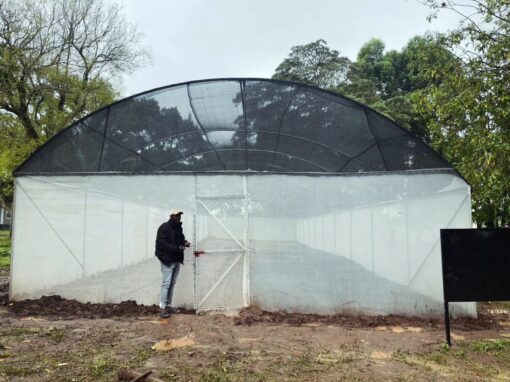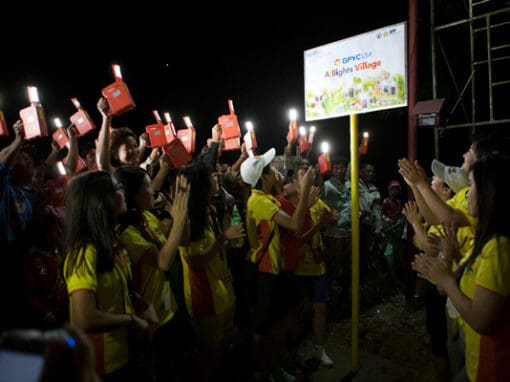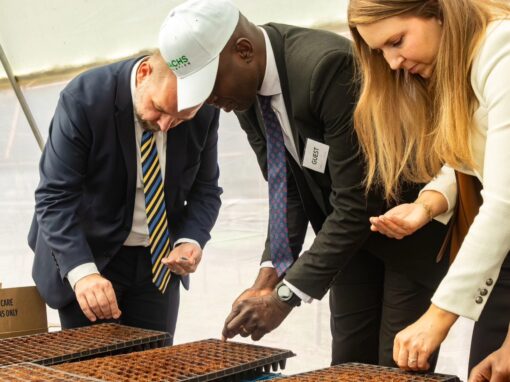Nothing encapsulates the feeling of familiarity and comfort like a home-cooked meal prepared by the women in our families. However, women’s roles do not just stop in the kitchen. Making up 43% of the global agricultural labor force, women are central to farming and play vital roles in food security and nutrition at both the household and community levels.
Throughout the years of working with Orang Asli (original peoples of Malaysia) communities, we are continuously inspired by the passion and drive of Orang Asli women as they strive to improve and diversify their livelihood through various income-generating opportunities. However, despite their interest and hard work, many of them continue to face complex challenges, such as a lack of knowledge, resources, and capital.

A few examples of income generation by Orang Asli women (From left to right: Salmah tapping rubber, Koi gathering bertam, Liana harvesting lemongrass)
Syntropic Farming for Food Security
To address some of these challenges, we kickstarted a Syntropic Agroforestry project with the Orang Asli farmers. This food farming project aims to rejuvenate the ecosystem to allow a diverse variety of plants to grow. In the long term, we hope that these farms will become self-sufficient, providing villagers with nutrient-dense and organic food, as well as additional opportunities for income generation.
It has now been over one year since we started the Syntropic Farming project, and many of our Amai (“aunty” in Jakun) farmers have successfully harvested a variety of vegetables and fruits ranging from chili, corn, and ginger to bananas, sweet potatoes, and lemongrass.
Economic Empowerment: From Farming to Selling
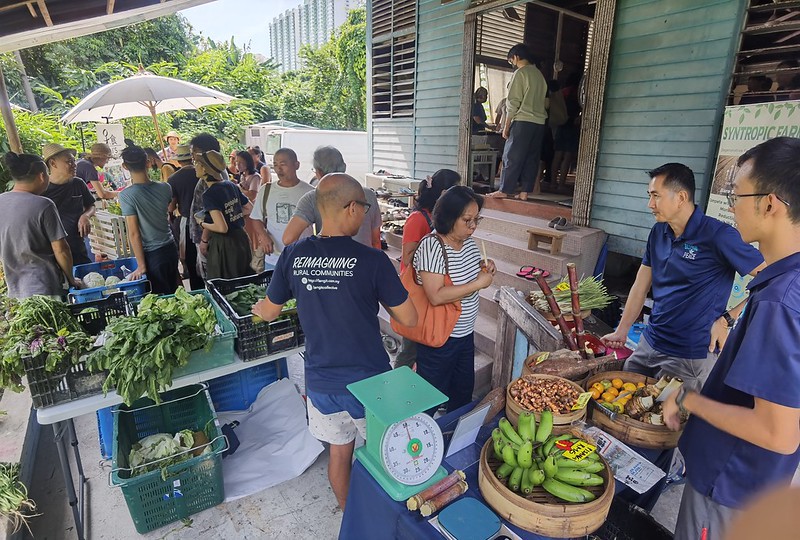
Global Peace team selling Kebun Amai produce at organic markets
However, as farmers begin to harvest their vegetable and fruit crops, they are now faced with another challenge–market access to sell their produce. Many farmers have difficulty selling their produce to nearby towns or markets due to the remoteness of the villages and lack of transportation.
In order to bridge market access barriers, we set up the Kebun Amai to support our farmers in marketing and selling their fresh produce.
Just last month, we partnered with Kongsi Co-op, a consumer cooperative in Malaysia, to support the Orang Asli to sell their fresh produce in organic markets across the Klang Valley area. Selling an assortment of vegetables and fruits such as bananas, ginger, sengkuang, lemongrass, and more, this partnership not only brings renewed hope for the Orang Asli farmers but also opens the door for additional opportunities for income generation.
We made the video above to show and encourage the Orang Asli farmers that there is great demand for organic food in the market. Through connections with wholesalers, grocers, and the communities within the Pahang and Klang Valley area, we hope to empower and support the farmers’ livelihood through income generation.
Meet Amai Normah and Amai Yati
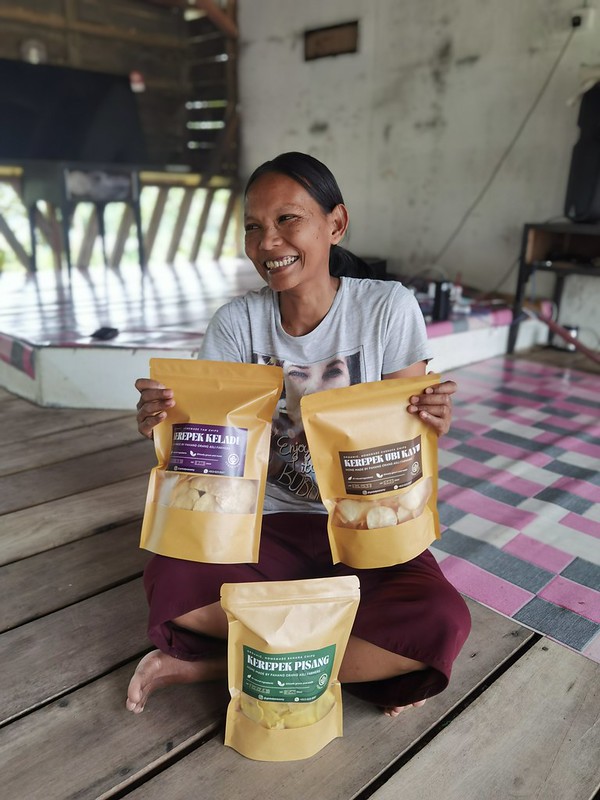
All smiles from Amai farmers from Kg. Guntung Minum as they showcase their homemade chips
In addition to selling their fresh produce, several Amai have also started experimenting with producing homemade products using harvested vegetables and fruits. As many of them expressed interest in making homemade chips, we organized a food production training session with the farmers. Additionally, we also provided the farmers with basic equipment to help them kickstart their homemade chips journey!
Amai Normah, an Orang Asli farmer from Kg. Pinang surprised our team with her creativity and initiative as she showed us her mouth-watering assortment of banana chips.
“Before this, I was disinterested in making chips and losing motivation in entrepreneurship. But after attending the chips making training, I tried to do it myself. I hope to start a mini market that focuses on selling chips with different flavours, and to innovate different variants of chips.”
-Amai Normah, Kg. Pinang
With flavors ranging from sweet, salty, spicy, and even one with turmeric spices, Amai Normah uses the harvested bananas from her farm to make her homemade banana chips. The quality and taste of the chips are so good that even the team from Yayasan Hasanah could not resist buying Amai Normah’s banana chips after having the opportunity to taste them.
Similarly, Amai Yati from Kg. Bukit Biru also specializes in homemade chips. Working diligently on her farm, Amai Yati is passionate about using her harvested produce to make chips. Since the food production training session, Amai Yati has made a variety of chips, though, her yam chips definitely take the top spot for best tasting!
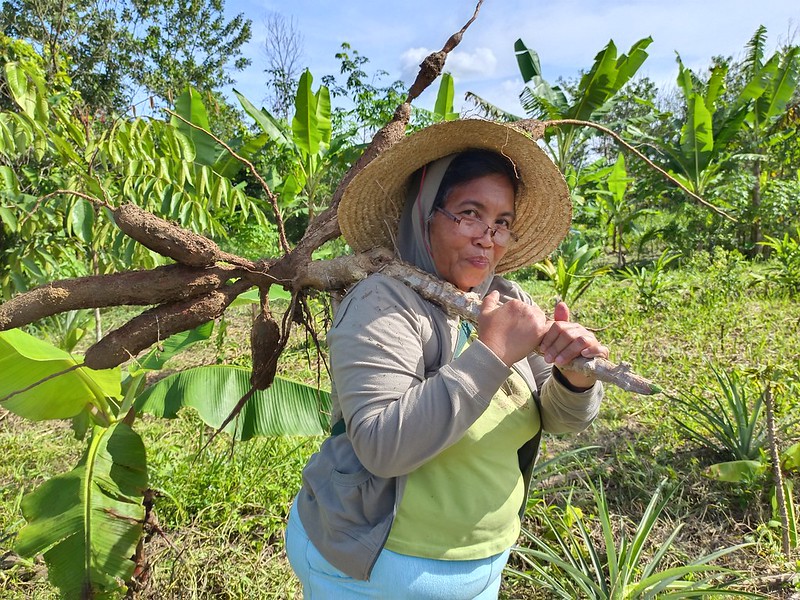
Amai Yati harvesting her farm

Amai Yati passionately making chips from harvest in her farm
New Hope for Orang Asli Amai
There’s no better feeling than seeing the proud smiles of the Orang Asli Amai, as they boast fruitful farms and a renewed hope for the future. In the long term, we hope that the Kebun Amai initiative will foster greater women’s entrepreneurship amongst the villagers, thus, opening the door for boundless opportunities for income generation.
Learn more Malaysia | Global Peace Foundation

